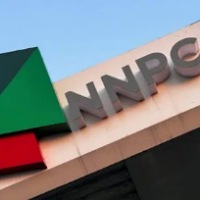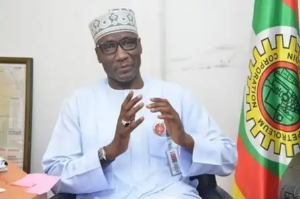Gas
IOCs ramp up investment in gas prouduction on back of power

LAGOS-With the recent increase in gas demand fuelled by reforms in the power sector, gas producing companies have seen opportunities for making more money as they are poised to increase their supply to the domestic market.
Shell Petroleum Development Company (SPDC) has already put in place a $6 billion gas utilsation project, and it has spent about $3 billion of this money, while another $3 billion would be spent on other projects to improve gas supply to the domestic market.
Shell said joint venture funding challenges had resulted in delays to some gas-gathering projects, adding that two of these projects, which were expected to gather an additional 35 percent of associated gas by 2014-15, were likely to be delayed.
Similarly, Total Upstream Nigeria has spent about $900 million on a gas pipeline that would supply gas to Alaoji power plant come January 2015. Its multi-billion dollar Amenam project which is due for commissioning in December is also geared towards pushing more gas to the domestic market and improving the value of gas.
Elisabeth Proust, managing director of the company, said in an interview with BusinessDay that through the various gas utilisation projects, the company would also achieve zero gas flare by January 2015 as the Ofon phase 11 project, which would tie all gas from other installations, would have been completed.
“We have one major installation where we are flaring gas, and this is Ofon, but this would stop by January 2015. The shutdown was planned for December but I want to be careful because even though we meant December, it could be extended to the second week of January 2015. Other installations are connected to the gas system and so, we would have zero gas flare,” said Proust.
Also Eni, the Italian oil giant and one of 15 oil operators participating in the Global Gas Flaring Reduction Partnership, the World Bank’s public-private partnership, has embarked on some gas utilisation programme that would help boost power generation. The over $1.5 billion which the company has already consolidated in some gas projects within its operations is meant for improving gas utilisation and reducing the volume of flared gas between 2010 and 2012.
Eni has achieved consistent reduction in gas flaring in Nigeria (down 11 percent), where the “Ogbainbiri Flow Station Upgrading” and “Idu Phase 2 Works Completion & Flaring Down” projects are ongoing.
In 2009, the government developed a Gas Master Plan aimed at promoting investment in gas through pipeline infrastructure and gas utilisation. The government recently created a tariff framework that will incentivise the utilisation of the gas being flared to generate electricity.
“We are trying to create a tariff framework that will incentivise the utilisation of the gas being flared to generate electricity,” Abba Ibrahim, commissioner, government and consumer affairs, Nigerian Electricity Regulatory Commission (NERC), told BusinessDay on the sidelines of a recent conference.
“We will encourage the building of new infrastructure by giving good tariffs that will incentivise the use of the flared gas. This will complement what the Department of Petroleum Resources (DPR) is doing. They put the penalty and we put the incentives. So it is a carrot-and-stick approach and that is why institutions like ours work collaboratively,” Ibrahim said.
With the recent privatisation of the power sector and ongoing reforms designed to encourage investment in power generation capacity from the existing 6,000 megawatts (MW) to 40,000 MW by 2020, demand for gas is expected to grow from 1.8 billion cubic feet per day (bcfd) in 2012 to 7.2 bcfd in 2025, equivalent to 11.3 percent increase per annum.
Nigeria has over 180 trillion cubic feet (Tcf) of discovered reserves and up to 600 Tcf of undiscovered gas reserves, but requires massive investment to unlock the value in the resource. The country is second to Russia in global gas flaring, according to the World Bank, as it currently flares about 1.5bcf daily.
BUSINESSDAY-
Breaking News
NNPC JV Unveils New Crude Oil Grade ‘Nembe’, Commences Exports With 1,900 Barrels

Precious ADELOLA
The NNPC/Aiteo Joint venture has announced the introduction of Nembe Crude Oil Grade, a new crude oil grade into the international crude oil market.
The announcement of the Nembe Crude Oil Blend, produced by Aiteo, the Operator of the NNPC/Aiteo Oil Mining Lease (OML) 29 Joint Venture (JV), was made at the ongoing Argus European Crude Conference in London, on Tuesday.
OML 29, an asset located onshore Nigeria, is operated by Aiteo Eastern Exploration & Production Ltd, Africa’s leading indigenous hydrocarbon producer, following a historic acquisition from Shell in 2014.
The Nembe Crude was previously blended with the popular Bonny Light grade and exported via the Bonny Oil & Gas Terminal.
The unique selling point of the Nembe Crude Oil grade with an API gravity was highlighted by both the Aiteo E & P and NNPC Limited Leadership at the Argus Conference in London.
The Nembe Crude Oil grade also has a low sulphur content and low carbon footprint due to flare gas elimination, fitting perfectly into the required spec of major buyers in Europe.
Two cargoes of 950,000 barrels each of the Nembe Crude Oil grade have since been exported to France and the Netherlands. With its attractive Assay of API 29 and low sulphur content, the Nembe Crude Oil grade commands a premium to the global Brent benchmark.
With the NNPC-Aiteo OML 29 JV back on-stream, Nigeria now boasts of an additional crude oil export of 2 Cargoes at 950,000 barrels each per month and 1.2 Bcf of export gas monthly.
This remarkable achievement signals the commencement of activities at Nigeria’s newest crude oil terminal, the Nembe Crude Oil Export Terminal (NCOET), which was licensed in line with the extant laws and Crude Oil Terminal establishment regulations.
The terminal was conceived as a Floating Storage and Offloading Vessel (FSO) with a storage capacity of two (2) Million Barrels and the ability to offload crude oil to any export tanker from AFRAMAX to Very Large Crude Carriers (VLCC).
It has a loading capacity of 25,000 barrels per hour and will be exporting over 3.6 million barrels of Crude oil monthly at full scale of operation.
Currently, hydrocarbon production from OML 29, which was hitherto constrained due to evacuation challenges owing to the security issues around the Nembe Creek Trunk Line (NCTL) corridor, has now been resolved through a collaborative and creative approach that led to the innovation of the Alternative Crude Oil Evacuation Solution.
The Argus European Crude Conference 2023 in London is a gathering of energy majors, refiners, NOCs, traders, financial institutions, and other representatives from across the global oil markets. The event also provides a critical opportunity for business leaders to connect, discuss, share and learn from one another.
Business
NNPCL, NCDMB, Oil Majors Agree Improved Efficiencies

Modupe Asudo
Major players in the oil and gas sector in Nigeria led by the Nigerian National Petroleum Company Limited (NNPCL) have covenanted to optimise operations by reducing contracting cycle to not more than 180 days.
A statement issued by the company disclosed that the Memorandum of Understanding (MoU) to this effect was endorced on Monday in Abuja at the company’s head office.
Other parties to the the contract include, the Nigerian Content Development and Monitoring Board, (NCDMB) and international oil companies.
Biztellers reports that an optimised contracting cycle was expected to improve the ease of doing business, reduce cost and drive efficiency, which would eventually translate to production growth, increased revenues, and ultimately improved profitability.
In addition, the MoU was expected to contribute significantly to the double-digit economic growth rate agenda of the Federal Government and generate value for all stakeholders, including investors, companies, host communities and Nigeria.
Notable elements in the framework of the MoU, going by the statement, included a reduction of the contracting cycle for open competitive tender, selective tender, and single sourcing tender to 180, 178, and 128 working days respectively.
This was in contrast with the current best effort performance of 327, 333, and 185 working days respectively.
According to Group Chief Executive Officer, NNPCL, Mele Kyari, signing the agreement portends exciting times for Nigeria’s oil and gas industry, in addition to standing as a bold testimony that the company was plunging into the future of hope, productivity and success.
Kyari, represented at the occasion by Executive Vice President, Upstream, NNPCL, Oritsemeyiwa Eyesan, pointed out that with oil and gas as the bedrock of Nigeria’s economy, there was need to get the contracting process in the Industry right so as to get the economy back on track.
In his remarks, Executive Secretary, NCDMB, Simbi Wabote, described the MoU as a way forward and a critical step towards enhancing the nation’s crude oil production.
Business
Winners emerge in NCDMB National Essay Competition, as Board harps on in-country value addition

Modupe Asudo
Winners of the 7th Nigerian Content Annual National Undergraduate Essay Competition, 2023, were unveiled on Wednesday at the Lady Daima Memorial Event Center, Yenagoa, Bayelsa State at a well-attended ceremony. It was the Grand Finale of the competition, with the top 10 finalists awarded prizes.
Overall best was Miss Iruoma Favour Lazarus, a 200-level student of the Faculty of Law, Nnamdi Azikiwe University, Awka. She received a cheque for one million naira (N1,000,000.00) and an HP laptop. The second prize went to Miss Lucy Agbalu, a 100-level student of Microbiology at the University of Calabar, who had a cheque for seven hundred thousand naira and an HP laptop, while the third prize was won by Akinduyite O. Samuel, who received five hundred thousand naira and a similar laptop.
In an address to the “Award and Prize-giving Ceremony,” the Executive Secretary, Nigerian Content Development and Monitoring Board (NCDMB), Engr. Simbi Kesiye Wabote, said the Board seeks to “inculcate local content consciousness among students of our higher institutions,” thereby creating champions of such an endeavour.
He described local content as “an existential necessity for every nation, particularly for developing nations like Nigeria.” That much was evident from the resilience of Nigeria’s oil and gas industry in the face of the COVID-19 pandemic in 2020/2021.
The NCDMB boss noted that the topic of the essay competition, which was “Nigerian Content and the Lessons from COVID-19,” was well-conceived “considering how the COVID-19 pandemic devastated our world.” He said at the height of the pandemic, “the movement of persons and goods was disrupted for several months, forcing every nation to rely on their local resources for survival.”
According to him, “The Nigerian oil and gas industry survived that period because of the huge local human and infrastructural capacities we had developed since the enactment of the Nigerian Oil and Gas Industry Content Development Act in 2010.” Efficient implementation of the Act, he pointed out, “ensured that Nigeria’s oil production continued without interruption, even when all the expatriates had left the country.”
Engr. Wabote, who was represented by the Manager, Corporate Corporations, Barr. Esueme Dan Kikile, called on policy-makers at different levels of government and in the private sector to take deliberate steps “to develop resilient and sufficient human and infrastructural capacities in key sectors of our national fabric, which can withstand any external shocks in future.”
While commending winners of the essay contest and the consultants, Mahogany Century Concepts Limited, he said the Board has sustained the competition for seven years because of the huge importance it attaches to it, and that the intention is to challenge students in tertiary institutions to sharpen their writing skills and engage youths in productive activities.
The annual essay competition is one of several initiatives of the NCDMB designed to benefit the youth segment of the Nigerian population. Others include the ‘Integrated Institutional Strengthening and Upgrade,” under which the Board has undertaken and completed massive renovation of technical workshops and installation of world-class facilities in institutions like Government Technical College, Amoli in Enugu State, Government Technical College, Abak in Akwa Ibom State, Government Technical College, Port Harcourt, and the University of Ibadan Vocational School.
The Chairman of the occasion, Professor Allen A. Agih, in his opening speech, commended the NCDMB for its remarkable contributions to capacity building in the country. He corroborated the point made by the Executive Secretary on how the resiliency of the oil and gas industry withstood the pandemic, stating, “Nigerians did not run to foreign countries when COVID-19 struck.” He was represented by Mr. Fibainonine G. Paulley.
Chief Executive Officer of Mahogany, Mr. Eyinimi Omorozi, thanked the Executive Secretary and Management of the NCDMB for the sponsorship of the essay competition and contribution to national development.












